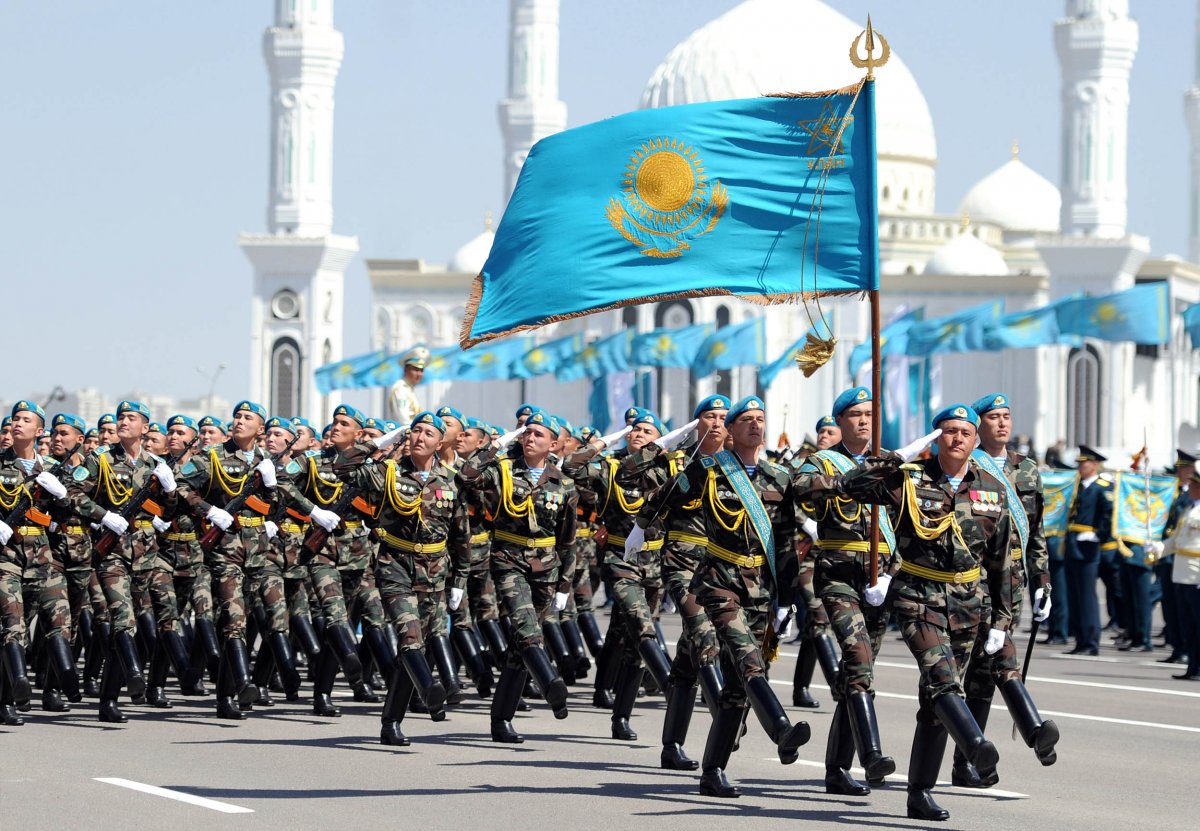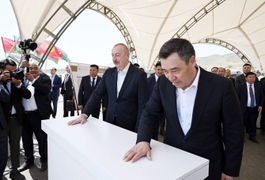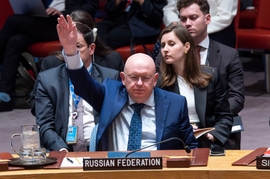Having played a role in mitigating conflicts and maintaining peace in Africa and the Middle East, to spearheading a major global initiative aimed at reducing the number of countries capable of producing enriched uranium, Kazakhstan has steadily played the role of peacekeeper and peace-broker since its founding in 1991.
Since 2017, Astana, Kazakhstan has been playing host to a series of peace talks centered on Syria, aimed at finding a peaceful solution to a conflict that has been roiling the Middle East for over six years and shows no signs of letting up.
“We fully support the Astana process on Syria and express our gratitude to Kazakhstan for its peacekeeping efforts, as achieving agreements on de-escalation zones is absolutely critical at this difficult time,” UN Secretary-General Antonio Guterres said September 22 while meeting with Kazakhstan’s Foreign Minister Kairat Abdrakhmanov on the sidelines of the 72nd session of the UN General Assembly in New York.
Forces loyal to Syria’s President Bashar al-Assad and those opposed to his rule have been battling each other since March 2011, when the “Arab Spring” swept across countries including Tunisa and Egypt. Complicating matters in Syria has been the presence of terrorist organizations like the Islamic State, also known as “ISIS,” “IS” and daesh, which have been beaten back, thanks to international support from disparate countries including Russia, Iran, Turkey and the United States.
Six round of talks have already taken place in Astana. The first was held in January of this year, while the fourth, held in May, yielded a substantial outcome after bringing together representatives from rebel factions: A ceasefire agreement was signed by Russia, Iran and Turkey, which established four “de-escalation zones” inside Syria where all parties agreed to halt any hostilities. The agreement went into effect on of May 6, 2017.
Some experts believe that the Syrian peace talks in Astana are important for Kazakhstan, not only because they are helping broker reconciliation amongst the parties, but also because of the context in which they are being held.
“The platform that brings together very serious regional players such as Russia, Turkey and Iran, contributes to stabilization in the Asian region, and also serves as a complement to Kazakhstan’s initiatives to build cooperation between the countries of Asia within the framework of the so-called Conference on Interaction and Confidence-Building Measures in Asia,” Maksim Kaznacheyev, a Kazakhstani political expert, told Caspian News.
The Conference on Interaction and Confidence-Building Measures in Asia (CICA), meant to strengthen cooperation between countries in Asia and ensure stability and security in the region, was one of Kazakhstan’s major foreign policy initiatives after the country was created following the collapse of the Soviet Union in December 1991.
The brainchild of President Nursultan Nazarbayev, who first announced the idea at the UN General Assembly in 1992, it was launched in 1999. Today, 26 countries are members of CICA, including Afghanistan, Iraq, Iran, China, Russia, Turkey and Kazakhstan.
Kazakhstan has worked hard over the past quarter of a century to create an image of peacemaker and guarantor of political stability in the Central Asian region.
“We have reconfirmed our support to the comprehensive approach to security based on trust and transparency in the politico-military field, on rational economic and environmental policy and on the full-fledged observation of human rights, basic freedoms and the rule of law,” President Nazarbayev said while addressing the 2010 Organization for Security and Co-operation in Europe summit, which was held in Astana for the first time.
Experts believe that Kazakhstan’s participation in international peacekeeping operations are also important for a relatively young country that is trying to build its credentials in the international community.
“First, this is an attempt to build diplomatic relations with various kinds of players. Secondly, it is to give some experience to the officers and military personnel who are participating in such a kind of military missions,” Kaznacheyev said.
Since 2003, Kazakhstan sent nearly 300 peacekeepers to Iraq under a NATO-led mission, where its “Kazbat” battalion was responsible for destroying more than four million explosive ordinances.
Kazakhstani troops have also been sent on peacekeeping missions led by the United Nations, including those in Haiti, Western Sahara, Cote d’Ivoire and Liberia.
Just last month, Kazakhstan opened the world’s first low enriched uranium bank at the Ulba Metallurgical Plant in Oskemen, in eastern Kazakhstan. Technically owned and controlled by the International Atomic Energy Agency (IAEA), up to 90 metric tons of low enriched uranium, suitable to make fuel for a light water nuclear reactor, will be stored at the facility.
"Over the years of independence, we have made a swift journey from owning the world’s fourth arsenal to becoming the world leader in global non-proliferation [of nuclear weapons],” Kazakhstan’s President Nursultan Nazarbayev said at the facility’s inauguration ceremony on August 29.







 President Ilham Aliyev shed light on the evolving contours of the peace process with Armenia during an international conference in Baku this week. ...
President Ilham Aliyev shed light on the evolving contours of the peace process with Armenia during an international conference in Baku this week. ...
 Azerbaijan and Armenia started the process of demarcation of their border on Tuesday, with the installation of the first border markers based on ge...
Azerbaijan and Armenia started the process of demarcation of their border on Tuesday, with the installation of the first border markers based on ge...
 Iranian President Ebrahim Raisi expressed Tehran’s readiness to participate in significant development projects in Sri Lanka during the inauguratio...
Iranian President Ebrahim Raisi expressed Tehran’s readiness to participate in significant development projects in Sri Lanka during the inauguratio...
 Turkmen President Serdar Berdimuhamedow and British Secretary of State for Foreign Affairs, Commonwealth Affairs, and Development David Cameron dis...
Turkmen President Serdar Berdimuhamedow and British Secretary of State for Foreign Affairs, Commonwealth Affairs, and Development David Cameron dis...



